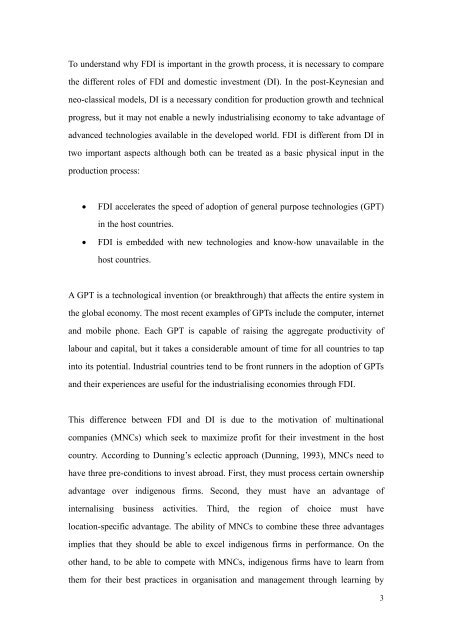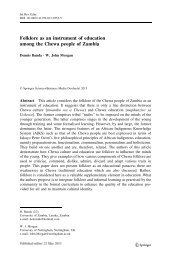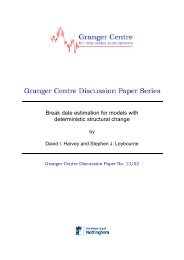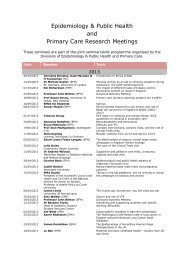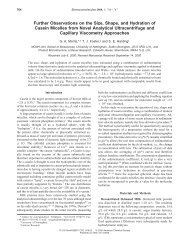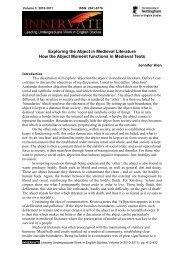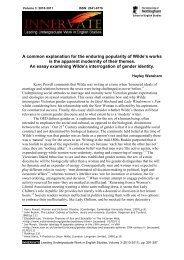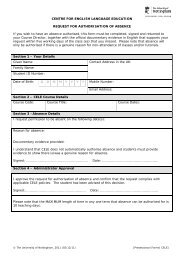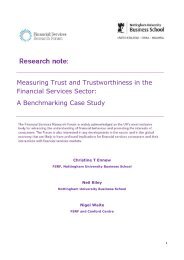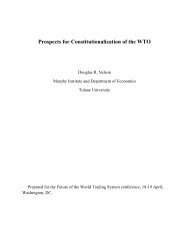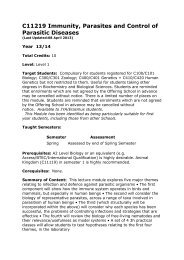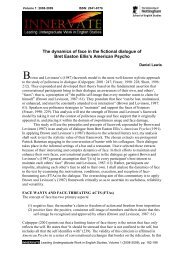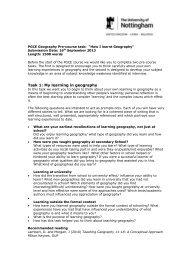FDI as a Shifter and a Mover of Economic Growth in a Newly ...
FDI as a Shifter and a Mover of Economic Growth in a Newly ...
FDI as a Shifter and a Mover of Economic Growth in a Newly ...
You also want an ePaper? Increase the reach of your titles
YUMPU automatically turns print PDFs into web optimized ePapers that Google loves.
To underst<strong>and</strong> why <strong>FDI</strong> is important <strong>in</strong> the growth process, it is necessary to compare<br />
the different roles <strong>of</strong> <strong>FDI</strong> <strong>and</strong> domestic <strong>in</strong>vestment (DI). In the post-Keynesian <strong>and</strong><br />
neo-cl<strong>as</strong>sical models, DI is a necessary condition for production growth <strong>and</strong> technical<br />
progress, but it may not enable a newly <strong>in</strong>dustrialis<strong>in</strong>g economy to take advantage <strong>of</strong><br />
advanced technologies available <strong>in</strong> the developed world. <strong>FDI</strong> is different from DI <strong>in</strong><br />
two important <strong>as</strong>pects although both can be treated <strong>as</strong> a b<strong>as</strong>ic physical <strong>in</strong>put <strong>in</strong> the<br />
production process:<br />
• <strong>FDI</strong> accelerates the speed <strong>of</strong> adoption <strong>of</strong> general purpose technologies (GPT)<br />
<strong>in</strong> the host countries.<br />
• <strong>FDI</strong> is embedded with new technologies <strong>and</strong> know-how unavailable <strong>in</strong> the<br />
host countries.<br />
A GPT is a technological <strong>in</strong>vention (or breakthrough) that affects the entire system <strong>in</strong><br />
the global economy. The most recent examples <strong>of</strong> GPTs <strong>in</strong>clude the computer, <strong>in</strong>ternet<br />
<strong>and</strong> mobile phone. Each GPT is capable <strong>of</strong> rais<strong>in</strong>g the aggregate productivity <strong>of</strong><br />
labour <strong>and</strong> capital, but it takes a considerable amount <strong>of</strong> time for all countries to tap<br />
<strong>in</strong>to its potential. Industrial countries tend to be front runners <strong>in</strong> the adoption <strong>of</strong> GPTs<br />
<strong>and</strong> their experiences are useful for the <strong>in</strong>dustrialis<strong>in</strong>g economies through <strong>FDI</strong>.<br />
This difference between <strong>FDI</strong> <strong>and</strong> DI is due to the motivation <strong>of</strong> mult<strong>in</strong>ational<br />
companies (MNCs) which seek to maximize pr<strong>of</strong>it for their <strong>in</strong>vestment <strong>in</strong> the host<br />
country. Accord<strong>in</strong>g to Dunn<strong>in</strong>g’s eclectic approach (Dunn<strong>in</strong>g, 1993), MNCs need to<br />
have three pre-conditions to <strong>in</strong>vest abroad. First, they must process certa<strong>in</strong> ownership<br />
advantage over <strong>in</strong>digenous firms. Second, they must have an advantage <strong>of</strong><br />
<strong>in</strong>ternalis<strong>in</strong>g bus<strong>in</strong>ess activities. Third, the region <strong>of</strong> choice must have<br />
location-specific advantage. The ability <strong>of</strong> MNCs to comb<strong>in</strong>e these three advantages<br />
implies that they should be able to excel <strong>in</strong>digenous firms <strong>in</strong> performance. On the<br />
other h<strong>and</strong>, to be able to compete with MNCs, <strong>in</strong>digenous firms have to learn from<br />
them for their best practices <strong>in</strong> organisation <strong>and</strong> management through learn<strong>in</strong>g by<br />
3


